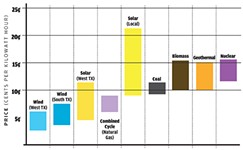Council: Fire, Flood, and Men on Horseback
Contentious issues fill this week's slate
By Michael King, Fri., May 16, 2014
Sued if you do, sued if you don't. That looks like the choice facing City Council at today's meeting, Thursday, May 15, whatever they decide on Item 10 of their agenda: "Approve a settlement of claims asserted by the United States Department of Justice concerning hiring practices within the Austin Fire Department." This particular blaze has been simmering a while, and the city had delayed hiring new AFD cadets until the claims of discrimination – more specifically, "adverse impact" on minorities in the qualifying process – were reviewed the DOJ.
That review has been completed, and the DOJ did indeed find adverse impact on minority candidates, although in its consent decree now drafted for Council discussion and approval, DOJ lawyers are careful to reiterate: "The United States does not allege in its Complaint that the City engaged in intentional discrimination." In essence, the charge – and now a federal court case against the city – is that in 2012, the city used a faulty testing system on AFD applicants (and also bungled implementation in timing and scoring) such that African-American and Hispanic applicants were unfairly disadvantaged. If the city approves the consent decree, hiring resumes, some minority applicants in the queue will be hired (with back pay), and the lawsuit goes away – but the hiring process will also be effectively handed over to the DOJ for a period of four to eight years.
That latter provision sticks in the craw of the Austin Firefighters Association, which has complained before that the city appears to be using the consent decree as a way of evading good faith contract negotiations with the union. (See "Is the City Trying to Bust the Firefighters Union?" Feb. 7.) In a letter to the DOJ, union attorney Craig Deats wrote of the meetings between the parties, "Negotiations at the mediation appear to have broken down due to COA's insistence that hiring procedures not be subject to the collective bargaining process with the AFA."
The AFA points to the relative success of the 2013 hiring process – which qualified a considerable group of minority candidates (enough, it appears, to satisfy the decree), who are now awaiting the outcome of this impasse – and they've released a counter-proposal, saying that there is no reason for the decree to cover post-2012 procedures: "The 2013 process results prove that not only does the process work, it works extremely well. The successful 2013 results prove that AFA's involvement had a positive effect on the hiring process. At AFA, we see no reason to fix something that is not broken."
The union promises that members will be out in force at today's Council meeting, adding: "Should City Council vote to approve the consent decree, the Austin Firefighters Association is prepared to go to court." Negotiations may resume, but right now it looks like pick your legal poison.
Item 10, the DOJ consent decree, is listed on the consent agenda – but will inevitably be "pulled for speakers," sometime after 4pm.
Highways and Waterways
The consent decree should be a good morning's work or more, and if Council gets through that, also expect a good deal of deliberation over Item 22, a resolution reiterating the city's ongoing opposition to the construction of SH 45 (aka the "Aquifer Highway") and – since the city's options to stop the project are fairly limited – asking staff to do what it can to propose alternatives. The resolution (proposed by CMs Laura Morrison and Kathie Tovo) invokes the Endangered Species Act and the Balcones Canyonlands Conservation Plan and asks staff to report back within 90 days with any progress.
A set of three resolutions, carried by CM Chris Riley, would step the city's toes into the ever-vexed question of taxi services Downtown – more specifically, trying to engage the latest trend in ridesharing apps or "Transportation Networking Companies" (Uber, Lyft, and the like) without upsetting the economic applecarts of existing cab companies and their drivers. The overarching problem is the imbalance of supply and demand: At peak times or during big events, there aren't enough cabs (or other vehicles-for-hire) to go around, but at non-peak times, there are barely enough riders to keep drivers in groceries and companies in business. Beyond that, ridesharing raises all sorts of issues of insurance, liability, etc., and Council's previous forays into this territory haven't been terribly successful, beyond maintaining the inadequate status quo while illegal and unregulated services proliferate.
Some of those questions were raised at Tuesday's work session, and Riley acknowledged that nobody has the answers yet, even nationally. His Items 24-26 represent another attempt to address this issue – initially through the peak time scarcity – and see if staff can propose some solutions.
Also among Council resolutions is Mike Martinez's proposal to find additional money to fund buyouts of the remaining endangered (or already flooded) homes in the Onion Creek flood plain. Over the years, federal support has been slow, even while new maps drew more homes into the flood plain; last fall's disastrous flood confirmed the danger, and Martinez's resolution asks staff to find funding options, with the suggestion that a 75-cent bump in the city's drainage fee would raise enough money to buy out the remaining 142 homes still unaccounted for. If approved, the resolution would move that discussion (and any other options staff can find) into the budget process for further consideration.
Too much water on one end of town, too little water on the other: Also returning today is the much-postponed public hearing on revisions in the Lake Austin shorefront zoning regulations.
Money Matters
Meanwhile, annual budget presentations and preparations proceed, with Council a bit annoyed in early work-session discussions at changes in the procedures coming out of the Budget Office at the direction of City Manager Marc Ott. A couple of members made it plain that they weren't happy with Ott's all-caps "pronouncement" to budget staff – "NO INCREASE IN THE PROPERTY TAX RATE" – not because they necessarily want to raise the rate (nobody's yet proposed that), but because any such changes, up or down, are strictly Council's policy purview. Beyond that, CMs also bristled at Ott's unilateral decision this budget cycle not to have department heads compile their "unmet needs" lists: the annual wish list of what citizens request and departments would like to provide ... if they only had the money.
Again, based on recent discussions (and election season), Council is unlikely to be in a spending mood – but they'd still like to know what they're doing without, and beyond that, some members believe Ott is increasingly drifting into Council policy territory. Accordingly, an unmet needs list is now in preparation.
Nevertheless, the Austin Police Department budget tends to roll perennially on, outside the boundaries of that particular minefield, with ever-expanding budget requests and only Lonesome Bill Spelman to stick his foot in the roadway. In the initial budget presentations (also much less detailed than in previous years), Spelman noted that APD's new-funds request, at $12.4 million, represents more than half of the $23 million increase in the overall General Funds budget, and that he would be expecting the department to justify all that additional money. By his own acknowledgment, Spelman's tug-of-war over the APD budget has become "ritual" over the years, and despite all his Proliferating PowerPoints, the police budget keeps expanding. On the other end of the rope, APD Chief Art Acevedo points to an ever-expanding Austin population and shrugs, "We need more police officers."
Guess who wins.
Got something to say on the subject? Send a letter to the editor.











